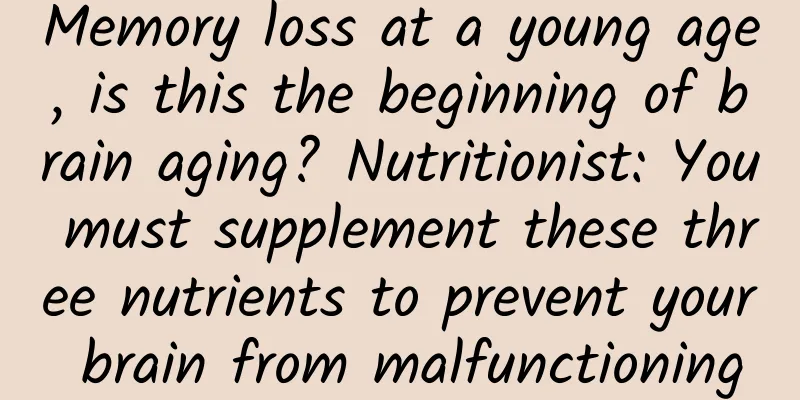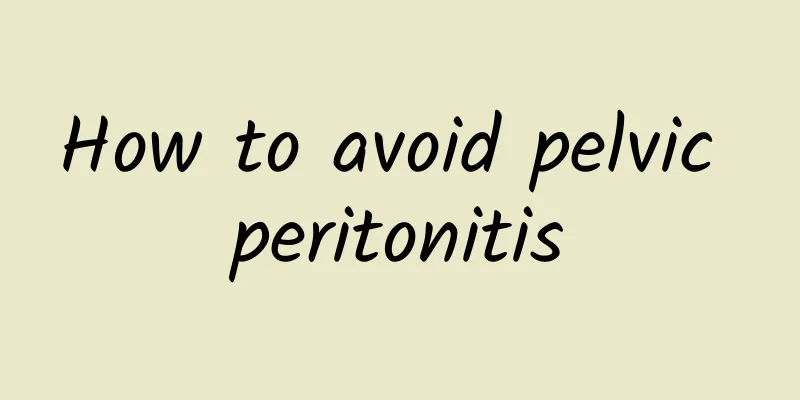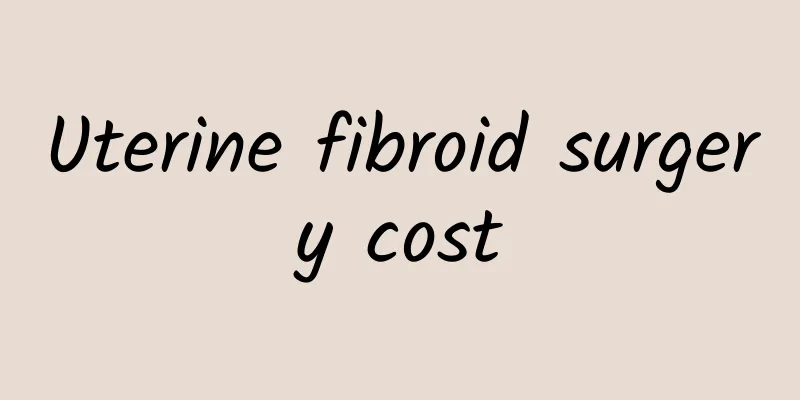Memory loss at a young age, is this the beginning of brain aging? Nutritionist: You must supplement these three nutrients to prevent your brain from malfunctioning

|
Why do I feel that my memory is declining and my reaction and concentration are not as good as before at the young age of 40? Is this a phenomenon of “early brain aging”? What should you eat in your daily diet to maintain your brain? Let nutritionist Su Yanchen tell you. Memory and cognitive impairment are a normal part of agingNutritionist Su Yanchen said that the hippocampus in the human brain is a key part for forming long-term memory, but this part will gradually decline with age; and the hormones and proteins that protect and repair brain cells and stimulate nerve growth will also decline with the passage of time. In addition, in terms of physiological functions, aging also causes a decrease in blood flow to the brain, which in turn damages memory and leads to changes in cognitive abilities. However, there is a difference between "brain aging", which is the memory loss caused by normal aging, and "dementia". For example, "occasionally" forgetting the location of frequently used items, such as glasses or keys; or "occasionally" forgetting appointments with people, being easily distracted, etc., these symptoms are mostly memory loss rather than pathological changes (such as Alzheimer's disease). There is a difference between "brain aging", which is the memory loss caused by normal aging, and "dementia". In addition, problems such as high blood pressure, diabetes, smoking, drug addiction, cerebrovascular disease, hypercholesterolemia, sleep disorders, depression and stress are easily accompanied by memory loss. Information provided by nutritionist Su Yanchen Dietary supplementation of 3 nutrients can improve memoryAlthough occasional memory failure or cognitive decline is a normal physiological phenomenon, nutritionist Su Yanchen pointed out that if you can moderately consume nutrients that are beneficial to the brain in your diet, you can slow down the rate of brain decline, so that even when you live to old age, your mind will still be sharp and not stuck. Brain-boosting nutrient 1: Vitamin D Epidemiological statistics have found that elderly people with lower vitamin D levels in their bodies have faster cognitive decline. Therefore, if you want to maintain good brain power, when you go out to play, don’t just hold an umbrella to block the sun. Use sunlight to supplement the body’s vitamin D. In addition to improving memory, it can also make you feel happier! Brain-boosting nutrients 2: Vitamin B complex (folic acid, vitamin B-6, vitamin B-12) Dark green vegetables, beans, nuts, yeast, etc. are all food sources of B vitamins, which help regulate brain cells and enzymes, thereby reducing memory loss. Human studies have also found that large amounts of B vitamins (folic acid, vitamin B-6, vitamin B-12) can improve brain atrophy and thus improve cognitive ability. Brain-boosting nutrients 3: flavonoids After an 8-week experiment, drinking orange juice rich in flavonoids (305 mg) every day was found to improve the elderly's spatial, language, and memory abilities. Why does it have such magical effects? Because flavonoids can cross the blood-brain barrier, they affect the hippocampus and prefrontal cortex in the brain, thereby improving brain function. Flavonoids are mostly found in various fruits and vegetables such as tomatoes and grapes, nuts, beans and green tea. After an 8-week experiment, drinking orange juice rich in flavonoids (305 mg) every day was found to improve the elderly's spatial, language, and memory abilities. Study: DASH diet can help slow memory lossIn addition to the above three nutrients, nutritionist Su Yanchen said that the DASH diet can also help delay brain decline. The DASH diet was originally a healthy diet for treating high blood pressure. Studies have shown that elderly people who adopt the DASH diet (Mediterranean diet) can slow down memory and cognitive decline. The following are the five principles of the DASH diet: The 5 principles of the DASH diet Principle 1: Replace refined starches with whole grains. Principle 2/Eat more vegetables and fruits. Principle 3/Reduce red meat. Principle 4/Plant-based protein is preferred. Principle 5/Eat unsaturated vegetable fats. Don’t let your brain get stuck, follow these 3 tipsIf you want to have a sharp mind, it is not enough to just supplement nutrients. You also need to make appropriate adjustments to your lifestyle. Nutritionist Su Yanchen provides 3 tips to help activate your brain: Tip 1: Reduce stress: Stress can cause the body to release cortisol, a stress hormone that has been shown to atrophy the part of the brain that handles memory, leading to memory loss. Tip 2/Regular work and rest, exercise: A regular lifestyle plus daily walks and stretching exercises can help relieve anxiety. Exercise can promote blood circulation in the brain and increase sensitivity, and is one of the best ways to prevent memory loss. Tip 3/Learn new things: Learn things you have never done before, such as learning a new language, dancing, cooking, anything that interests you, which can exercise your brain and activate your brain nerves. |
Recommend
What can women eat to treat uterine fibroids? What can women eat to treat uterine fibroids?
What can women eat to treat uterine fibroids Intr...
Can I skip rope if I have chocolate cyst? What should I pay attention to if I have chocolate cyst?
Although chocolate cyst is not a difficult diseas...
What are the symptoms of uterine fibroids? What are the dangers of uterine fibroids?
Uterine fibroids are a type of benign uterine tum...
What harm does pelvic effusion cause?
Many women find that they have pelvic fluid accum...
Environmental Protection Agency plans to add 3 more substances to the list of controlled substances
Drinking water helps eliminate toxins from the bo...
Experts review the precautions for chronic cervicitis
Chronic cervicitis is a type of cervicitis, and t...
Why is it necessary to test basal body temperature for functional uterine bleeding?
Basal body temperature examination can assist in ...
Does right ovarian cyst have a big impact on pregnancy? What are the hazards?
Does right ovarian cyst have a big impact on preg...
Can exercise treat cervical hypertrophy?
Cervical hypertrophy can be improved with the hel...
What is the impact of cervical hypertrophy on sexual life? What are the ways to prevent cervical hypertrophy?
Clinically, if cervical hypertrophy is not well p...
What is the best drug treatment for chocolate cysts?
Women are prone to chocolate cysts in life. Many ...
Wound care after laparoscopic treatment of uterine fibroids
Uterine fibroids are the most common benign tumor...
What Chinese medicine should I take to treat endometrial thickening?
For patients with thick endometrium, effective tr...
Treatment of Dysfunctional Uterine Bleeding Requires Treatment of Both Symptoms and Root Causes
Functional uterine bleeding, referred to as DUB, ...
What are the main misunderstandings in the treatment of vaginitis?
What are the main misunderstandings in the treatm...








![[Video version] Do coriander and carrots have a strange smell? Turn 6 kinds of "disgusting foods" into happy and delicious foods](/upload/images/67dcf7edc6e71.webp)
